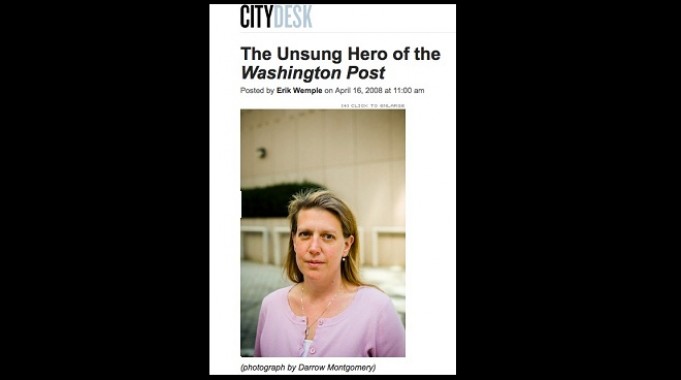The unsung hero of the Washington Post
Screen grab of Julie Tate from the Washington City Paper.
When Julie Tate’s name appears in the Washington Post, it’s generally surrounded by predictable text. The predictable text sits at the footer of the story, and often at the footers of long and complicated stories. The predictable text, always in italics, reads like this:
Staff researcher Julie Tate contributed to this report.
The formulation is simple and brief, in the best of newspaper traditions.
And in light of recent events, it may be one of the grandest understatements in journalism. On April 7, the Post won six Pulitzer Prizes, a one-year record for the paper and just one shy of the all-time mark set by the New York Times. The six-pack was bound together by a masthead that loves investigative reporting and a company with a history of ponying up for journalism.
Another thread was Tate, who was involved in four of the six prizes—the series on Vice President Dick Cheney, the stories on private security contractors in Iraq, the series on Walter Reed Army Medical Center, and the breaking news coverage of the Virginia Tech massacre. When the Post newsroom was celebrating the awards, the 38-year-old Tate was called upon to share the limelight with the by-lined honorees.
“Extraordinary,” remarked Executive Leonard Downie Jr. when asked by Washington City Paper to comment on Tate’s contributions.
Those contributions tend to begin early in a story’s development.
Read the rest here







